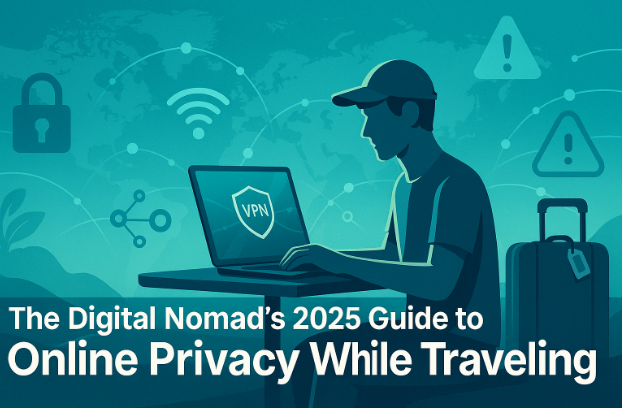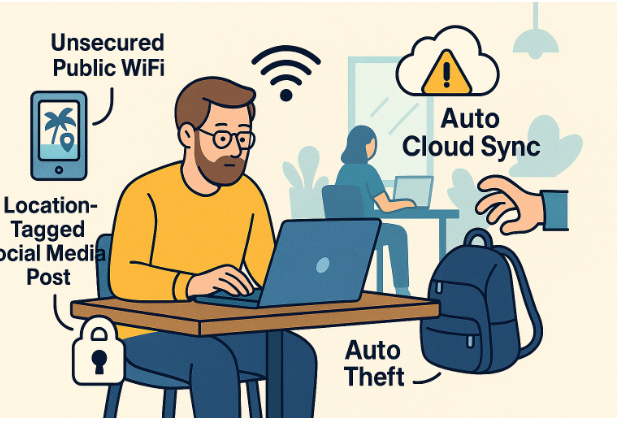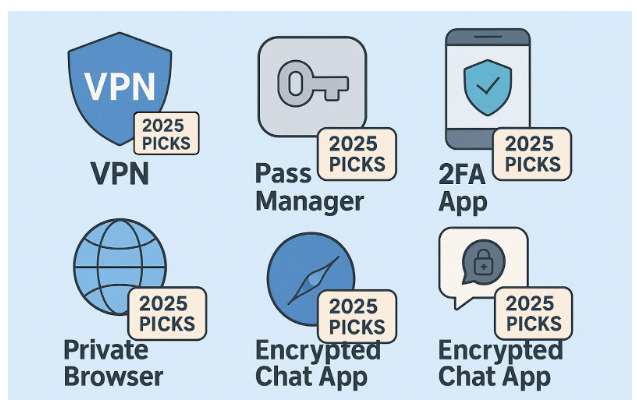BUSINESS
Hela Cells: Pioneering Contributions to Medical Research and Beyond

Introduction to Hela Cells
Hela cells, derived from a cervical cancer sample taken from Henrietta Lacks in 1951, have become one of the most significant tools in modern medical research. These cells have been instrumental in countless scientific breakthroughs, ranging from the development of vaccines to the study of cancer and other diseases. In this comprehensive article, we will explore the history, applications, and ethical considerations surrounding Hela cells.
The Discovery of Hela Cells
Henrietta Lacks and the Origin of Hela Cells
Henrietta Lacks, an African American woman, sought treatment for cervical cancer at Johns Hopkins Hospital in Baltimore, Maryland, in 1951. During her treatment, a sample of her cancerous cells was taken without her knowledge or consent, a common practice at the time. These cells were then cultured by Dr. George Gey, who discovered their unique ability to survive and proliferate indefinitely in laboratory conditions.
The Unique Properties of Hela Cells
Hela cells possess several remarkable characteristics that make them invaluable for medical research:
- Immortality: Hela cells can divide indefinitely, making them an endless supply of cellular material for experiments.
- Rapid growth: These cells multiply quickly, allowing researchers to obtain large quantities of cells in a short period.
- Adaptability: Hela cells can survive in various laboratory conditions, making them suitable for a wide range of experiments.
Applications of Hela Cells in Medical Research
Vaccine Development
Hela cells have played a crucial role in the development of several vaccines, including those for polio in 1954, measles in 1963, mumps in 1967, and rubella in 1969. The mass production of these vaccines has saved countless lives worldwide.
The mass production of these vaccines has saved countless lives worldwide.
Cancer Research
Hela cells have been extensively used in cancer research, helping scientists understand the mechanisms behind tumor growth and develop new therapies. Some key areas of cancer research involving Hela cells include:
- Studying the effects of radiation and chemotherapy on cancer cells
- Identifying genetic mutations that contribute to cancer development
- Testing new drugs and treatments for various types of cancer
Other Medical Breakthroughs
In addition to vaccine development and cancer research, Hela cells have contributed to numerous other medical advancements, such as:
- Understanding the mechanisms of viral infections, including HIV and HPV
- Developing new techniques for in vitro fertilization
- Studying the effects of zero gravity on human cells, which has implications for space travel
Ethical Considerations
Lack of Informed Consent
The story of Henrietta Lacks and the Hela cells raises important ethical questions about informed consent and patient rights. Lacks’ cells were taken without her knowledge or permission, and her family was not informed about the existence of the cells until years later. This highlights the need for clear and transparent communication between medical professionals and patients regarding the use of biological samples.
Racial Disparities in Medical Research
The fact that Henrietta Lacks was an African American woman also sheds light on the historical racial disparities in medical research. The unauthorized use of her cells is a reminder of the exploitation and mistreatment of minority populations in the name of scientific advancement. It is crucial to address these disparities and ensure that medical research is conducted in an ethical and equitable manner.
The Lacks Family and Legacy
In recent years, efforts have been made to acknowledge Henrietta Lacks’ contributions to medical science and to compensate her family. In 2013, the National Institutes of Health reached an agreement with the Lacks family to grant them some control over the use of Hela cells in research. Additionally, the Henrietta Lacks Foundation was established to provide financial assistance to individuals and families who have contributed to medical research without their knowledge or consent.
Conclusion
The story of Hela cells is one of scientific triumph and ethical challenges. These cells have revolutionized medical research, leading to countless breakthroughs that have improved and saved lives worldwide. However, the unauthorized use of Henrietta Lacks’ cells also highlights the need for greater transparency, informed consent, and racial equity in medical research. As we move forward, it is essential to recognize and honor the contributions of Henrietta Lacks and her family while ensuring that the rights and dignity of all patients are respected in the pursuit of scientific knowledge. Additionally, the ongoing discussions and policies arising from the Hela cells’ legacy continue to shape how we handle biological samples today, aiming to build a future where scientific progress is achieved ethically and inclusively, benefiting all of humanity. Moreover, the legacy of Hela cells serves as a powerful reminder of the intersection between science and humanity, prompting the scientific community to not only reflect on past mistakes but also to strive for a more ethical future. This includes implementing rigorous standards for informed consent, fostering diversity in research participation, and ensuring that the benefits of scientific discoveries are shared equitably. By addressing these issues, the scientific community can honor the contributions of Henrietta Lacks and others like her, paving the way for a more just and inclusive approach to medical research that respects the dignity and rights of all individuals involved.
BUSINESS
The most important questions small business owners should ask

You’re not alone. Another $4.99 million in new businesses have opened this year, too. No wonder you have a lot of questions.
After all, you have to look after all aspects of small business as an entrepreneur. Or you’ve simply been dumbstruck and not able to understand where to start from.
Don’t worry. A lot of people face such issues when they start their own business. Let me help you with some ideas. I’ll share a list of 4 questions that most entrepreneurs ask me. Maybe you will get some valuable leads from there-
#1: “I don’t have enough resources, but a lot on the plate to handle. Where to begin?”
I know getting along is tough. The main issue is that you don’t have the main men in supporting roles like your C-suite. Here’s the trick. You have to do strong networking.
Now, how will that help you?
Firstly, who should you network with? Preferably, people like attorneys, accountants, and fellow business owners. They can sync with your purpose. At the same time, they will give you valuable advice, opinions, and suggestions.
You may also consider tools like Secure Plus checks. The automated check software handles your financial part. At least, you can easily keep a tab on your costs without breaking a sweat.
#2: I lag in digital innovation. Without a digital presence, I would lose customers. What do I do?”
When the pandemic hit, 75% of the US businesses without a digital presence fell from their positions to ground 0. Cut to today! A lot of consumers expect that even small businesses like bakeries and repairs will have their full-fledged digital profiles.
There are a lot of tools that help you set up your website. But most companies spend the lion’s share of their marketing budget on digital campaigns like content marketing and SEO.
There is a range of free tools to get your work done. You may need just a few people on your team to build the whole digital ecosystem.
After your digital ecosystem is up and running, you can get traction from a lot of sources. You can expect to tap into a range of new territories too.
#3: How to pitch your business to gain access to more capital?
A lot of people mess up their finances, mixing them with their business. So, I refrain from doing that. Instead, approach a capitalist or an institution (preferably banks, as they offer low interest rates) for financial support.
You’re not alone. Another $4.99 million in new businesses have opened this year, too. No wonder you have a lot of questions.
After all, you have to look after all aspects of small business as an entrepreneur. Or you’ve simply been dumbstruck and not able to understand where to start from.
Don’t worry. A lot of people face such issues when they start their own business. Let me help you with some ideas. I’ll share a list of 4 questions that most entrepreneurs ask me. Maybe you will get some valuable leads from there-
#1: “I don’t have enough resources, but a lot on the plate to handle. Where to begin?”
I know getting along is tough. The main issue is that you don’t have the main men in supporting roles like your C-suite. Here’s the trick. You have to do strong networking.
Now, how will that help you?
Firstly, who should you network with? Preferably, people like attorneys, accountants, and fellow business owners. They can sync with your purpose. At the same time, they will give you valuable advice, opinions, and suggestions.
You may also consider tools like Secure Plus checks. The automated check software handles your financial part. At least, you can easily keep a tab on your costs without breaking a sweat.
#2: I lag in digital innovation. Without a digital presence, I would lose customers. What do I do?”
When the pandemic hit, 75% of the US businesses without a digital presence fell from their positions to ground 0. Cut to today! A lot of consumers expect that even small businesses like bakeries and repairs will have their full-fledged digital profiles.
There are a lot of tools that help you set up your website. But most companies spend the lion’s share of their marketing budget on digital campaigns like content marketing and SEO.
There is a range of free tools to get your work done. You may need just a few people on your team to build the whole digital ecosystem.
After your digital ecosystem is up and running, you can get traction from a lot of sources. You can expect to tap into a range of new territories too.
#3: How to pitch your business to gain access to more capital?
A lot of people mess up their finances, mixing them with their business. So, I refrain from doing that. Instead, approach a capitalist or an institution (preferably banks, as they offer low interest rates) for financial support.
You’re not alone. Another $4.99 million in new businesses have opened this year, too. No wonder you have a lot of questions.
After all, you have to look after all aspects of small business as an entrepreneur. Or you’ve simply been dumbstruck and not able to understand where to start from.
Don’t worry. A lot of people face such issues when they start their own business. Let me help you with some ideas. I’ll share a list of 4 questions that most entrepreneurs ask me. Maybe you will get some valuable leads from there-
#1: “I don’t have enough resources, but a lot on the plate to handle. Where to begin?”
I know getting along is tough. The main issue is that you don’t have the main men in supporting roles like your C-suite. Here’s the trick. You have to do strong networking.
Now, how will that help you?
Firstly, who should you network with? Preferably, people like attorneys, accountants, and fellow business owners. They can sync with your purpose. At the same time, they will give you valuable advice, opinions, and suggestions.
You may also consider tools like Secure Plus checks. The automated check software handles your financial part. At least, you can easily keep a tab on your costs without breaking a sweat.
#2: I lag in digital innovation. Without a digital presence, I would lose customers. What do I do?”
When the pandemic hit, 75% of the US businesses without a digital presence fell from their positions to ground 0. Cut to today! A lot of consumers expect that even small businesses like bakeries and repairs will have their full-fledged digital profiles.
There are a lot of tools that help you set up your website. But most companies spend the lion’s share of their marketing budget on digital campaigns like content marketing and SEO.
There is a range of free tools to get your work done. You may need just a few people on your team to build the whole digital ecosystem.
After your digital ecosystem is up and running, you can get traction from a lot of sources. You can expect to tap into a range of new territories too.
#3: How to pitch your business to gain access to more capital?
A lot of people mess up their finances, mixing them with their business. So, I refrain from doing that. Instead, approach a capitalist or an institution (preferably banks, as they offer low interest rates) for financial support.
You’re not alone. Another $4.99 million in new businesses have opened this year, too. No wonder you have a lot of questions.
After all, you have to look after all aspects of small business as an entrepreneur. Or you’ve simply been dumbstruck and not able to understand where to start from.
Don’t worry. A lot of people face such issues when they start their own business. Let me help you with some ideas. I’ll share a list of 4 questions that most entrepreneurs ask me. Maybe you will get some valuable leads from there-
#1: “I don’t have enough resources, but a lot on the plate to handle. Where to begin?”
I know getting along is tough. The main issue is that you don’t have the main men in supporting roles like your C-suite. Here’s the trick. You have to do strong networking.
Now, how will that help you?
Firstly, who should you network with? Preferably, people like attorneys, accountants, and fellow business owners. They can sync with your purpose. At the same time, they will give you valuable advice, opinions, and suggestions.
You may also consider tools like Secure Plus checks. The automated check software handles your financial part. At least, you can easily keep a tab on your costs without breaking a sweat.
#2: I lag in digital innovation. Without a digital presence, I would lose customers. What do I do?”
When the pandemic hit, 75% of the US businesses without a digital presence fell from their positions to ground 0. Cut to today! A lot of consumers expect that even small businesses like bakeries and repairs will have their full-fledged digital profiles.
There are a lot of tools that help you set up your website. But most companies spend the lion’s share of their marketing budget on digital campaigns like content marketing and SEO.
There is a range of free tools to get your work done. You may need just a few people on your team to build the whole digital ecosystem.
After your digital ecosystem is up and running, you can get traction from a lot of sources. You can expect to tap into a range of new territories too.
#3: How to pitch your business to gain access to more capital?
A lot of people mess up their finances, mixing them with their business. So, I refrain from doing that. Instead, approach a capitalist or an institution (preferably banks, as they offer low interest rates) for financial support.
You’re not alone. Another $4.99 million in new businesses have opened this year, too. No wonder you have a lot of questions.
After all, you have to look after all aspects of small business as an entrepreneur. Or you’ve simply been dumbstruck and not able to understand where to start from.
Don’t worry. A lot of people face such issues when they start their own business. Let me help you with some ideas. I’ll share a list of 4 questions that most entrepreneurs ask me. Maybe you will get some valuable leads from there-
#1: “I don’t have enough resources, but a lot on the plate to handle. Where to begin?”
I know getting along is tough. The main issue is that you don’t have the main men in supporting roles like your C-suite. Here’s the trick. You have to do strong networking.
Now, how will that help you?
Firstly, who should you network with? Preferably, people like attorneys, accountants, and fellow business owners. They can sync with your purpose. At the same time, they will give you valuable advice, opinions, and suggestions.
You may also consider tools like Secure Plus checks. The automated check software handles your financial part. At least, you can easily keep a tab on your costs without breaking a sweat.
#2: I lag in digital innovation. Without a digital presence, I would lose customers. What do I do?”
When the pandemic hit, 75% of the US businesses without a digital presence fell from their positions to ground 0. Cut to today! A lot of consumers expect that even small businesses like bakeries and repairs will have their full-fledged digital profiles.
There are a lot of tools that help you set up your website. But most companies spend the lion’s share of their marketing budget on digital campaigns like content marketing and SEO.
There is a range of free tools to get your work done. You may need just a few people on your team to build the whole digital ecosystem.
After your digital ecosystem is up and running, you can get traction from a lot of sources. You can expect to tap into a range of new territories too.
#3: How to pitch your business to gain access to more capital?
A lot of people mess up their finances, mixing them with their business. So, I refrain from doing that. Instead, approach a capitalist or an institution (preferably banks, as they offer low interest rates) for financial support.
Meanwhile, the pitch you are preparing is most crucial. Always try to reflect the potential of your business verticals. Reflect the objectives of the upcoming 5 years. At the same time, state your business figures. If your numbers are low, you must flaunt a clear plan to improve revenues.
Before you move with your business, you need to get some things straight. Firstly, you have to create your business checking account. In the meantime, you can apply for small business credit cards.
That’s the most lucrative way to fund the business verticals. However, it is better not to use your credit sources, like your own credit card or your loan, for your business needs.
If you mix your finances with those of your business, the banks might become confused. It would be difficult to get a clear picture of the company’s finances.
#4 What do we do to overcome the effect of inflation?
It depends mainly on the business. If you have an inventory, then your inventory management should be top-notch. Don’t spend more than you have. Also, ensure that you have a good grip on your cash flow.
During heavy inflation, your expenses may easily surpass your earnings. So, you must handle your front-end operations properly. Most importantly, you should hire a social media expert to promote your brand and scale up your business.
BUSINESS
The Digital Nomad’s 2025 Guide to Online Privacy While Traveling

You’re sipping espresso in a Lisbon café, editing your latest client project. The Wi-Fi is free. So is the hacker watching your every move.
Digital nomads are more connected than ever — and more exposed. From accidental overshares on Instagram to sketchy hotel internet, every country you visit brings a new set of privacy pitfalls.
In some cases, your digital trail can even be weaponized against you through tactics like doxxing — where personal details are leaked or used maliciously online.
This isn’t about fear — it’s about freedom. In this guide, you’ll discover how to secure your data, devices, and digital identity, so you can roam the world with peace of mind in 2025.
Why Online Privacy Matters More Than Ever for Digital Nomads
Life on the road is exhilarating — but also unpredictable. As digital nomads rely on remote access to sensitive files, finances, and communication tools, their personal data is increasingly vulnerable.
Whether you’re hopping between Airbnb stays, working in shared co-working spaces, or broadcasting your location on social media, your digital footprint becomes a roadmap for malicious actors. In 2025, with cyberattacks and personal data exposure on the rise, privacy isn’t a luxury — it’s a necessity.

8 Real-World Privacy Risks Nomads Face on the Road
1. Public Wi-Fi Networks & Data Interception
Open Wi-Fi at airports, cafés, and co-working spaces is notoriously unsafe. Hackers can easily intercept unencrypted data — including passwords, emails, and credit card details — through man-in-the-middle attacks.
2. Oversharing Locations on Social Media
Instagram stories, Twitter check-ins, and Facebook updates can inadvertently reveal your exact location and routine, making it easier for bad actors to track your movements or impersonate you online.
💡 Pro Tip: Delay your posts by 24 hours and remove metadata like geotags.
3. Device Theft in Hostels or Co-Working Spaces
It only takes a moment of distraction for someone to grab your laptop or phone. Without strong locks or biometric access, a thief could gain access to everything from work files to personal photos.
4. Unsecured Cloud Sync & Auto Backups
Many travelers keep cloud syncing on by default. But syncing on an unsecured network can expose sensitive files — especially if your device is set to auto-connect or auto-upload.
🔗 Related: What is Doxxing and How to Protect Yourself — understanding how personal data can be used against you is key to proactive defense.
5. SIM Swap & Phone Number Hijacking
SIM swap fraud can lock you out of your phone, bank, and 2FA-protected accounts. Travelers who use temporary or virtual numbers may be especially vulnerable.
6. Border Searches and Device Confiscation
Certain countries allow border agents to access your devices without a warrant. Without encryption or travel-specific device precautions, your data could be copied or detained.
7. Shoulder Surfing in Public Spaces
Whether you’re booking a flight or logging into PayPal, it’s surprisingly easy for someone nearby to observe or film your screen.
8. Malicious QR Codes and Travel Scams
From free Wi-Fi access signs to fake tour offers, QR code phishing has become a growing scam targeting international travelers.

Essential Privacy Tools Every Nomad Should Use in 2025
In the age of remote work, using the right privacy tools is the first line of defense.
Virtual Private Networks (VPNs)
A quality VPN like X-VPN encrypts your internet traffic, masking your IP and shielding you from network-based attacks.
Password Managers
Tools like 1Password or Bitwarden store your credentials securely and can generate ultra-strong passwords — far better than “Lisbon2025!”
2FA (Two-Factor Authentication)
Wherever possible, enable two-factor authentication. Use an authenticator app over SMS for added security, especially abroad.
Encrypted Messaging Apps
Use apps like Signal or Telegram for business and personal communication — especially when dealing with clients or sensitive files.
Private Browsers & Extensions
Browsers like Brave or Firefox with privacy extensions block trackers and fingerprinting scripts that follow you around the web.
Top Privacy Habits for Remote Workers Abroad
1. Secure Devices Before Traveling
- Turn on full-disk encryption
- Enable remote wipe for laptops and phones
- Disable auto-connect to open Wi-Fi networks
2. Review Social App Permissions
- Apps often track more than you think. Turn off location access where unnecessary and review privacy settings weekly.
3. Delay Posting & Remove Metadata
- Use tools like ExifCleaner to strip photo metadata before posting.
- Wait until you leave a location before sharing details publicly.
4. Use Burner Emails & Travel Phone Numbers
- For public Wi-Fi logins or signups, use disposable email addresses.
- Consider a separate SIM or eSIM for travel-related accounts.
Location-Specific Tips: How Privacy Laws Differ Around the World
Not all countries treat your data the same way. As a digital nomad, it’s worth knowing the regulatory landscape:
🇪🇺 Europe (GDPR Stronghold)
The General Data Protection Regulation (GDPR) provides strong protections — but only for EU citizens. Tourists may not be covered in the same way.
🇹🇭 Thailand / 🇮🇩 Indonesia
These countries have newer data laws but limited enforcement. Local internet cafés and SIM vendors may store ID info with little oversight.
🇺🇸 United States
Strong consumer rights in some states (like California), but little federal oversight. Law enforcement has broad access in some cases.
Final Thoughts: Staying Safe and Free in the Digital World
Living as a digital nomad in 2025 is an incredible opportunity — one that comes with great responsibility over your digital presence. With cyber threats growing and personal data becoming more valuable than ever, staying proactive about your privacy isn’t just smart — it’s essential.
Whether you’re working from a mountain town in Colombia or a co-working space in Prague, taking a few extra steps to secure your devices and protect your online identity can mean the difference between a smooth journey and a digital disaster.
Travel boldly, live freely — and always guard your digital trail.
BUSINESS
Know Your Rights: A Citizen’s Guide to Legal Protections

Introduction
Understanding your constitutional rights during interactions with law enforcement is essential for every citizen. This guide provides an overview of key legal protections guaranteed by the U.S. Constitution and relevant case law. While this information serves as a general educational resource, it is not a substitute for personalized legal advice from a qualified attorney.
The Fourth Amendment: Protection Against Unreasonable Searches and Seizures
The Fourth Amendment protects citizens against unreasonable searches and seizures by government officials, including police officers. This means:
- Warrant Requirement: In most cases, police need a warrant to search your home, vehicle, or personal belongings.
- Probable Cause: For a warrant to be issued, officers must demonstrate probable cause that evidence of a crime will be found.
- Exceptions: Several exceptions exist, including:
- Consent searches
- Plain view doctrine
- Searches incident to a lawful arrest
- Automobile exception (with probable cause)
- Exigent circumstances (emergencies)
The Fifth Amendment: Protection Against Self-Incrimination
The Fifth Amendment includes several important protections, most notably the right against self-incrimination:
- Right to Remain Silent: You cannot be compelled to provide testimony that might incriminate yourself.
- Miranda Rights: If you are in custody and being interrogated, officers must inform you of your rights to:
- Remain silent
- Be informed that anything you say can be used against you
- Have an attorney present during questioning
- Have an attorney appointed if you cannot afford one
The Sixth Amendment: Right to Counsel
The Sixth Amendment guarantees the right to legal representation:
- Right to an Attorney: You have the right to be represented by an attorney in all criminal proceedings.
- Public Defenders: If you cannot afford an attorney, one will be appointed to represent you.
- When the Right Attaches: This right begins at critical stages of prosecution, starting with formal charges.
During Police Encounters: Know Your Rights
Traffic Stops
- Remain calm and keep your hands visible.
- You must provide your license, registration, and proof of insurance when requested.
- You have the right to remain silent beyond providing basic identifying information.
- You may refuse consent to search your vehicle, but officers may search if they have probable cause.
- You are not required to answer questions about where you’re going or where you’ve been.
Street Encounters
- Ask if you are free to leave. If yes, you may calmly walk away.
- If detained, you have the right to know why you are being detained.
- You do not have to consent to a search of your person or belongings, though officers may conduct a limited pat-down for weapons if they have reasonable suspicion.
- Remaining silent cannot be used as evidence of guilt.
Home Encounters
- You do not have to open your door for police unless they have a warrant.
- You may ask to see the warrant before allowing entry.
- If officers have a valid search warrant, you should not interfere with their search, but you can observe and take notes.
- Without a warrant, you can deny entry (with some exceptions for emergency situations).
How to Exercise Your Rights
When Interacting with Police
- Stay calm and be respectful. Hostility can escalate situations unnecessarily.
- Clearly state that you are exercising your rights. For example: “I do not consent to a search” or “I am exercising my right to remain silent.”
- Ask if you are free to leave. If not, ask why you are being detained.
- Request an attorney immediately if arrested. Say clearly: “I want to speak with an attorney.”
- Do not resist arrest, even if you believe the arrest is unlawful. Legal challenges should be made in court, not on the street.
Documenting the Encounter
- Mental notes: Remember officer names, badge numbers, patrol car numbers.
- Witnesses: Note if there are witnesses to the interaction.
- Written record: As soon as possible, write down everything you remember.
- Medical attention: Seek medical attention immediately if injured and document all injuries.
When Professional Legal Help Is Necessary
While understanding your rights is crucial, navigating the legal system requires professional expertise in many situations:
- If you’ve been arrested or charged with a crime
- If your rights have been violated
- If you’re unsure about the legality of police actions
- Before making any statements to police in a criminal investigation
Finding the Right Legal Representation
- Criminal defense specialists have specific expertise in protecting citizens’ rights during criminal proceedings.
- Legal aid organizations can provide representation if you cannot afford an attorney.
- Bar association referrals can help you find qualified attorneys in your area.
- Public defenders are trained specifically in criminal defense.
Important Disclaimer
This guide provides general information about legal principles and is not legal advice tailored to specific situations. Laws vary by state and locality, and legal precedents evolve over time. Always consult with a qualified attorney for advice about your specific circumstances.
Resources for Further Information
- American Civil Liberties Union (ACLU): www.aclu.org
- National Legal Aid & Defender Association: www.nlada.org
- American Bar Association: www.americanbar.org
- State and local bar associations
- Legal aid organizations in your community
Conclusion
Knowledge of your constitutional rights is an essential component of citizenship, but it is only the first step. When facing serious legal situations, professional legal counsel is invaluable. Criminal law specialists are trained to navigate the complexities of the legal system and provide the personalized guidance necessary to protect your rights and interests.
Remember: The best protection is a combination of knowledge, calm assertion of your rights, and appropriate professional legal representation when needed.
-

 GENERAL1 year ago
GENERAL1 year agoDiscovering the Artistic Brilliance of Derpixon: A Deep Dive into their Animation and Illustration
-

 Posts1 year ago
Posts1 year agoSiegel, Cooper & Co.
-

 Lifestyle1 year ago
Lifestyle1 year agoPurenudism.com: Unveiling the Beauty of Naturist Lifestyle
-

 Lifestyle1 year ago
Lifestyle1 year agoBaddieHub: Unleashing Confidence and Style in the Ultimate Gathering Spot for the Baddie Lifestyle
-

 HEALTH1 year ago
HEALTH1 year agoTransformative Health Solutions: Unveiling the Breakthroughs of 10x Health
-

 Entertainment1 year ago
Entertainment1 year agoGeekzilla Podcast: Navigating the World of Pop Culture, Gaming, and Tech
-

 Entertainment1 year ago
Entertainment1 year agoKhatrimaza Unveiled: Exploring Cinematic Marvels and Entertainment Extravaganza
-

 BUSINESS1 year ago
BUSINESS1 year agoUnlocking the Secrets to Jacqueline Tortorice Remarkable Career and Accomplishments
